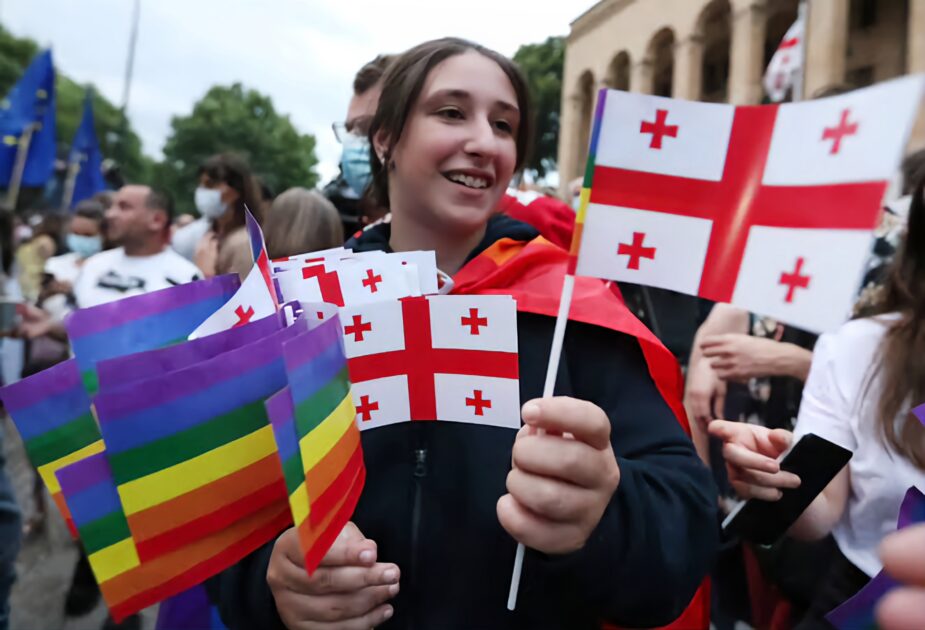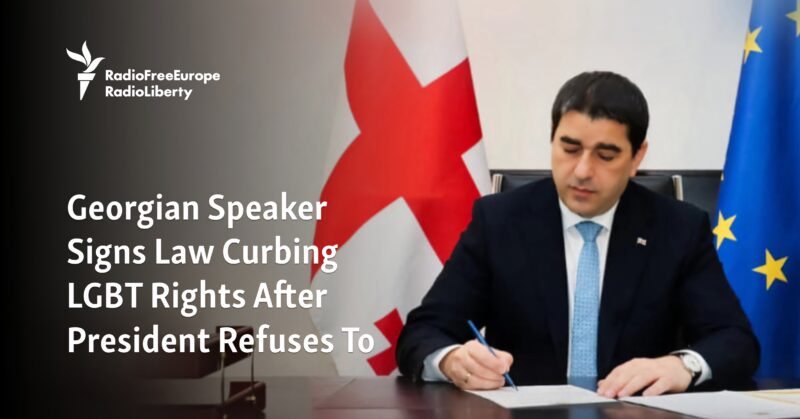In a contentious move, the speaker of the Georgian parliament, Shalva Papuashvili, signed a bill into law that severely restricts the rights of LGBTQ+ individuals in Georgia.
This legislation, which has drawn parallels to similar laws in Russia, comes after President Salome Zourabichvili declined to sign the bill and returned it to the parliament earlier this week. The bill’s approval by the governing Georgian Dream party has sparked outrage among human rights activists and LGBTQ+ advocates, both domestically and internationally.
Content of the New Law
The newly enacted law introduces a range of prohibitions affecting the LGBTQ+ community in Georgia. Specifically, it bans:
- Same-sex marriages: The law explicitly prohibits any form of legal recognition for same-sex unions.
- Adoption by same-sex couples: Same-sex couples will no longer have the right to adopt children, effectively denying them the ability to form legally recognized families.
- Public endorsement of LGBTQ+ relations: The law restricts media representation of LGBTQ+ individuals and relationships, limiting public visibility and acknowledgment of their existence.
- Gender-affirming care: The law also prohibits access to medical care for transgender individuals, including any procedures or treatments that support gender transition.
- Changes to gender designations: Individuals will not be able to alter their gender designation in official documents, undermining the rights of transgender people.
Shalva Papuashvili defended the legislation, asserting that it reflects “common sense, historical experience, and centuries-old Christian, Georgian, and European values.” He emphasized that the law is designed to protect the rights of all citizens, framing it as a matter of balancing freedom of expression against the perceived need to protect traditional values.
Presidential Opposition
President Zourabichvili’s refusal to sign the bill adds a layer of complexity to the political landscape in Georgia. Her decision to return the legislation to parliament was interpreted by many as a rejection of the increasingly conservative turn taken by the Georgian Dream party, which has been in power since 2012.
The opposition to the law is not limited to the presidential office. Various human rights organizations and activists have condemned the legislation, warning that it could lead to increased discrimination and violence against LGBTQ+ individuals.
Amnesty International and Human Rights Watch have called for immediate action to protect the rights of marginalized communities, emphasizing that this law undermines the principles of equality and non-discrimination enshrined in international human rights treaties to which Georgia is a signatory.

The signing of this anti-LGBTQ law has sparked widespread protests and public outcry in Georgia. Activists and supporters of LGBTQ+ rights have organized demonstrations to denounce the government’s actions, urging the parliament to reconsider and repeal the law.
Social media platforms have become battlegrounds for discussions on human rights, with many Georgian citizens expressing their disapproval of the law and calling for more inclusive policies.
Internationally, the law has drawn condemnation from various governments and human rights organizations. The European Union, which has been critical of Georgia’s human rights record in the past, has reiterated its commitment to promoting equality and non-discrimination. The EU’s stance reflects broader concerns about the erosion of democratic values and human rights in countries in Eastern Europe and the Caucasus region.
Implications for Georgia’s European Aspirations
The adoption of this law poses significant challenges for Georgia’s aspirations for European integration. Georgia has long sought closer ties with the European Union, and this legislation could jeopardize its progress toward that goal.
The EU has made it clear that respect for human rights and the rule of law are fundamental prerequisites for membership, and the enactment of anti-LGBTQ legislation runs counter to these principles.
The law also raises questions about the future of civil society in Georgia. Activists fear that such legislation will embolden conservative factions within the government and society, leading to increased hostility towards not only LGBTQ+ individuals but also other marginalized groups.
The normalization of discrimination could create a climate of fear and silence dissenting voices, undermining the vibrant civil society that has emerged in Georgia over the past two decades.
The signing of the anti-LGBTQ law by the Georgian parliament speaker represents a troubling shift in the country’s political climate and raises significant concerns about the protection of human rights in Georgia.
As public protests continue and international condemnation mounts, the future of LGBTQ+rights in Georgia hangs in the balance. The situation serves as a reminder of the ongoing struggle for equality and justice in many parts of the world, highlighting the need for continued advocacy and support for marginalized communities.










Join our Channel...